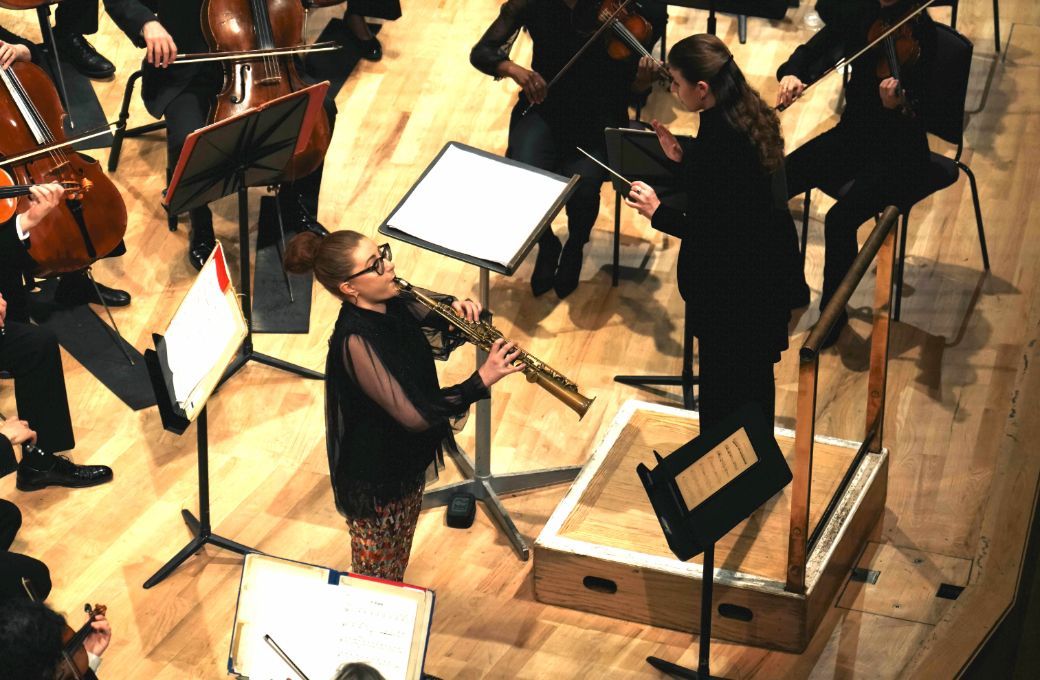Opportunities to see Britten’s opera Peter Grimes are few and far between in Manchester. I managed to catch a performance by Opera North in 2013 but, as far as I am aware, it has not been seen here since then. Fortunately the Four Sea Interludes can be heard much more often in the Bridgewater Hall and, on this occasion, the Hallé under Estonian conductor Kristiina Poska gave a thrilling performance. They conjured up the various aspects of the sea and the wind and the waves. The perilous coastline of Suffolk was dramatically evoked. The mood could change quickly like the sea; even when the surface was calm there was a suggestion of danger. The concluding Storm was truly ferocious.

This was followed by John Harle’s Briggflatts, a very approachable three-movement concerto, written for and dedicated to saxophonist Jess Gillam. She gave the premiere in 2019 and has played it with several orchestras and conductors since. The title comes from an autobiographical poem by Basil Bunting which, the composer tells us in his programme note, was the inspiration for the work. It refers specifically to the Briggflatts Quaker Meeting House near Sedbergh in Cumbria, which Bunting regularly attended. Gillam is also from Cumbria and the music has other links to the county. Especially in the light of the Britten that preceded it, the music recalled memories of the coastline and Cumbrian moors.
Harsh bird-like cries from the saxophone at the beginning of the opening movement, Flare, soon gave way to some beautiful melodious passages and then some remarkable section where rhythmic elements predominated, including clapping by members of the orchestra. Gillam had scarcely a moment’s pause, stunning the audience with her virtuosity. The second movement, Garsdale, was rather more relaxed; the finale, Rant!, was an infectious fantasy on Cumbrian folktunes. Gillam again demonstrated her knack of engaging an audience with unfamiliar music. The composer writes “Above all, my hope is that Briggflatts as music is as accessible and colourful as Bunting’s poetry, and that, like the poem, it can be appreciated on first listening”. I don’t know the poem, but the music was as colourful and accessible as any 21st-century music I have heard.
The second half of the concert was devoted to Sibelius’ Symphony no 1 in E minor. Principal clarinettist Sergio Castelló López gave a stunning account of the mournful solo that begins the work, at first with a quite timpani roll, then with shimmering strings. The Hallé have been playing Sibelius’ music since it was new and it is in their collective blood. Poska has a strong reputation in this repertoire and everything came together to make this an outstanding performance. The acoustics of the Bridgewater Hall helped too. Crucial details, especially from the woodwinds, were crystal clear. Poska ensured that the music breathed naturally. Nothing felt strained. It felt like a force of nature, as much as Britten’s Sea Interludes. If the composer had given the symphony a programme, as with his tone poems, one could have believed that it was a depiction of a landscape or an account of a story from the Kalevala, but he did not. As abstract music it was breathtaking.


